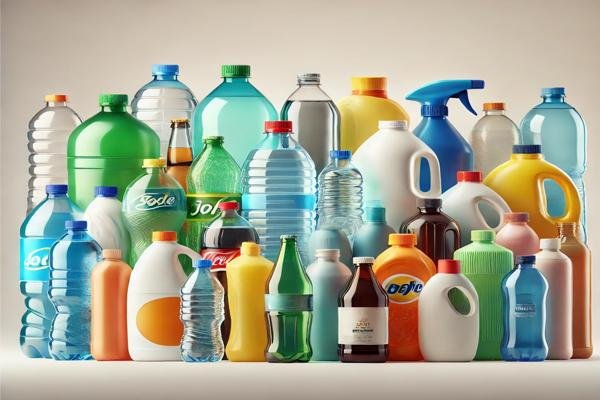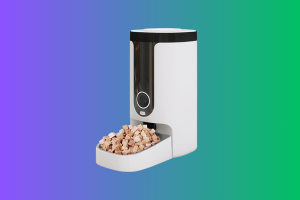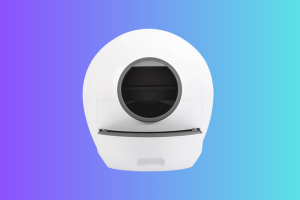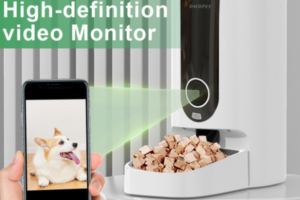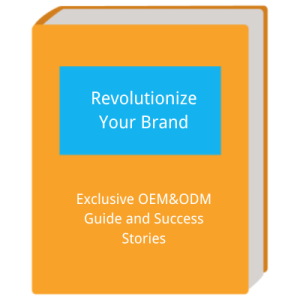The pet bottle industry plays a crucial role in the global market. It offers essential packaging solutions for various products. Choosing a local manufacturer for your plastic packaging needs can significantly impact your business. It is ensuring timely deliveries, reducing costs, and supporting the local economy. This article aims to guide companies in finding reliable pet bottle manufacturers nearby. It also focuses on the importance of local suppliers and the benefits they bring.
In plastic packaging, selecting the right pet bottle supplier is vital for maintaining quality and sustainability. Whether you’re looking for plastic bottles, containers, jars, or other plastic products, understanding the industry and knowing where to look for trusted manufacturers can make a significant difference. By the end of this guide, you’ll learn how to find the perfect plastic packaging partner for your business needs.
Search online directories, industry associations, and local business listings to find reliable pet bottle manufacturers near you. Verify their reputation through reviews and testimonials, and consider visiting their facilities to assess quality and operations firsthand. Want to know more about the benefits of choosing local manufacturers and how to evaluate their credibility? Keep reading for detailed insights and tips!
Understanding Pet Bottle Manufacturing
PET (Polyethylene Terephthalate) bottles are ubiquitous in our daily lives. They are found in everything from water and soda bottles to containers for juices, cooking oils, and even personal care products. Known for their durability, clarity, and safety, PET bottles have revolutionized the packaging industry.
PET bottles are lightweight, shatterproof, and, most importantly, 100% recyclable, making them a popular choice for both manufacturers and environmentally conscious consumers. They provide an excellent barrier against oxygen and carbon dioxide, ensuring the contents remain fresh and unspoiled. PET bottles are highly customizable, allowing for various shapes and sizes that cater to different marketing and functional needs.
Production Process of PET Bottles
- Material Preparation: The process begins with the preparation of raw materials. PET resin pellets are the primary raw material, and they are dried to remove any moisture content that can affect the quality of the bottles.
- Injection Molding: The dried PET pellets are then heated and injected into a mold to form preforms. These reforms, which look like test tubes with bottle threads at one end, are crucial for the next step.
- Conditioning: Preforms are conditioned through heating to make them pliable. This ensures they can be easily stretched and blown into the desired bottle shape.
- Blow Molding: The conditioned preforms are placed in a blow mold, rapidly expanding by injecting high-pressure air. This process shapes the preforms into bottles, matching the mold’s design specifications.
- Cooling: After blow molding, the bottles are cooled to maintain their shape and structural integrity. Cooling can be achieved through air or water cooling methods.
- Quality Control: Each bottle undergoes rigorous quality checks to meet industry standards. This includes checking for consistency in weight, wall thickness, clarity, and the absence of defects.
- Finishing: Finally, the bottles are trimmed to remove excess material, cleaned, and prepared for packaging and distribution.
Understanding the intricate process of PET bottle manufacturing helps us appreciate the effort and technology behind each bottle we use daily. It highlights the blend of science and innovation that makes these products both practical and environmentally friendly.
Benefits of choosing a local manufacturer
Choosing a local manufacturer for PET plastic bottles and other packaging products isn’t just a nod to supporting local businesses. It’s a strategic decision that brings numerous benefits. From cost savings to improved communication, partnering with a nearby manufacturer can be a game-changer for your business.
Cost-effectiveness and Reduced Logistics Costs
- Lower Transportation Costs: Shipping packaging products like PET plastic bottles, clear PET containers, and high-density polyethylene items locally significantly reduces transportation expenses.
- Reduced Import Duties: Avoiding international shipping eliminates import tariffs and fees.
- Minimized Risk of Damages: Shorter distances mean fewer chances for damage to plastic packaging products during transit.
- Bulk Purchase Savings: Buying bulk from a local custom PET or high-density polyethylene bottle manufacturer can result in substantial savings.
- Local Sourcing Incentives: Some regions offer tax incentives or grants for businesses that source locally, further reducing costs.
Ease of Communication and Site Visits
Communication becomes seamless when your plastic bottle manufacturer is just a short drive away. Whether you need to discuss a sudden design change for your cosmetic sprayers. OR inspect the plastic injection molding tools in person.
Having your manufacturer nearby means quicker face-to-face problem-solving. Site visits allow for direct oversight of the manufacturing process. They ensure that your food and beverage packaging products, glass packaging, and other custom items meet your standards.
Faster Turnaround Time and Shorter Lead Times
Local manufacturers can significantly reduce lead times. With fewer logistical hurdles and a closer working relationship, orders for plastic PET products like round bottles and sprayers can be fulfilled faster.
This speed is crucial for meeting market demands and staying ahead in competitive industries like cosmetics and food and beverage. Faster turnaround times mean your products hit the shelves quicker, giving you a competitive edge.
Opting for a local manufacturer for your PET packaging ensures efficiency, cost savings, and quality control, making it a smart move for any business looking to thrive.
Factors to consider when selecting a pet bottle manufacturer
Choosing the right pet bottle manufacturer is crucial for ensuring the quality and success of your product. Several factors must be considered from assessing the manufacturing processes to evaluating sustainability practices.
Here are the key points to keep in mind:
- Quality Standards and Certification: Ensure the manufacturer of plastic bottles adheres to rigorous quality standards and holds necessary certifications. Look for certifications like ISO or FDA compliance to guarantee that the plastic bottles and containers meet industry and safety standards. High-quality products, including plastic bottles, ensure consumer safety and brand integrity.
- Production Capacity: Evaluate the manufacturer’s production capacity to ensure it can meet your demand, whether you need small batches or large-scale production. This includes assessing their facilities and capabilities in extrusion blow molding and other manufacturing processes. A distributor of plastic bottles with a high capacity ensures timely delivery and consistent supply.
- Customization Options: Customization is vital for brand differentiation. Check if the manufacturer offers a range of customization options for plastic and glass bottles, such as unique shapes, sizes, and colors. Services include creating custom manufacturers of bottles made from plastic to meet specific branding and functional needs.
- Sustainable Practices and Eco-friendly Options: With increasing consumer awareness about sustainability, partnering with a manufacturer that employs eco-friendly practices is important. Look for options in high-density polyethylene and other recyclable materials. A standard and custom eco-friendly bottle manufacturer demonstrates a commitment to environmental responsibility.
Selecting the right pet bottle manufacturer involves a comprehensive evaluation of quality, capacity, customization, and sustainability to ensure your product stands out in the market.
Criteria for Choosing Pet Bottle Manufacturers Near Me
When choosing a pet bottle manufacturer near me, several criteria come into play to ensure the best partnership. Proximity is crucial, making visits and communications easier and ultimately impacting shipping costs and timelines. Evaluating the manufacturer’s industry experience and reputation, including client testimonials and certifications, ensures reliability.
The production capacity and technology used are vital, as they determine the ability to handle large or custom orders with advanced machinery. Quality assurance practices, including inspection processes and sample testing, guarantee consistency. Robust customer service and support, especially responsiveness and handling customization requests, round out the essential criteria.
Location and Accessibility
Proximity is key when selecting a pet bottle manufacturer. Being close to the source means you can easily visit the facility to inspect production processes and address concerns in person. This ease of communication leads to quicker problem-solving and better alignment of project specifications.
The nearness significantly reduces shipping costs and delivery timelines, ensuring that your plastic packaging products, like custom manufacturers of bottles, arrive on schedule without incurring excessive freight charges.
Industry Experience and Reputation
A manufacturer’s experience and reputation are critical in assessing their reliability. Companies with years in operation have likely honed their processes and built a solid customer base. Client testimonials can provide insights into their service quality and product reliability.
Look for manufacturers with industry-standard certifications, such as ISO, indicating compliance with rigorous quality and safety standards. A distributor of plastic bottles, including custom containers. Those meeting these criteria are more likely to consistently deliver high-quality products, including plastic bottles.
Production Capacity and Technology
Assessing a manufacturer’s production capacity and technology is essential, especially if you require large orders or custom designs. Advanced technology and machinery, like extrusion blow molding and blow-molded plastic processes, ensure precision and efficiency.
A facility that handles various plastic materials and bottle designs, including Boston round bottles, round bottles, and cylinder bottles, can cater to diverse needs. This capacity ensures they can meet your demands, whether for standard pet bottles or custom plastic jars for personal care products.
Quality Assurance Practices
Quality assurance is non-negotiable when choosing a manufacturer. Robust inspection processes and adherence to quality standards ensure that each batch meets the required specifications. Sample testing and batch consistency checks are crucial to maintaining high standards.
Manufacturers with comprehensive quality assurance practices, especially those with ISO certification, provide confidence in the products, whether plastic bottles and containers or beverage bottles.
Customer Service and Support
Excellent customer service and support are vital for a smooth partnership. Responsiveness to inquiries and efficient after-sales support demonstrates a commitment to customer satisfaction. A good manufacturer will effectively handle customization requests and address any complaints promptly.
How to find a pet bottle manufacturer near me?
Finding a reliable pet bottle manufacturer near you can be a game-changer, especially if you’re in the business of packaging beverages, pet care products, or household items. When looking for a standard and custom plastic container manufacturer.
Several factors must be considered, such as the material used, production capacity, and quality standards. High-quality plastic bottles are available in various forms, including squeeze bottles, intermediate bulk containers, and blow-molded plastic options.
Start by researching local manufacturers specializing in high-density polyethylene and PET materials, known for their durability and versatility in creating bottles and jars.
Using Online Directories to Find a Pet Bottle Manufacturer Near Me
A powerful search engine that can quickly locate local manufacturers of high-quality plastic bottles, including those specializing in spouts, pails, and other custom designs.
B2B Platforms
Websites like Alibaba and ThomasNet offer extensive listings of plastic bottle manufacturers. That allows you to compare services, read reviews, and directly contact potential suppliers.
B2C Platforms
Platforms like Amazon and eBay can provide insights into smaller manufacturers and niche suppliers that might not be listed on traditional B2B directories.
Social Media and Forums
Engage with industry-specific groups on LinkedIn, Facebook, and specialized forums to gather recommendations and firsthand experiences from other businesses.
Trade Shows and Exhibitions
Attending trade shows and exhibitions is another effective way to find a plastic bottle manufacturing partner. These events provide an opportunity to meet multiple suppliers face-to-face and view samples of their work.
And discuss specific needs like custom design services, high-density polyethylene options, and JIT (Just In Time) delivery capabilities. Exhibitions also showcase the latest innovations in the industry, such as advancements in blow-molded plastic technology. And the integration of sustainable practices in manufacturing processes.
Industry-Specific Catalogs and Associations
Industry-specific catalogs and associations are invaluable resources for finding manufacturers of plastic bottles and jars. Associations like the Plastics Industry Association (PLASTICS) often provide directories of vetted manufacturers who specialize in a range of products, including intermediate bulk containers, squeeze bottles, and high-quality plastic items.
These catalogs usually detail the materials used, such as PET and high-density polyethylene, and highlight manufacturers’ capabilities in producing stock items and custom designs. Associations often have member directories that can connect you with reputable suppliers in your area, ensuring you find a manufacturer that meets your specific requirements.
Comparison and Evaluation
A comprehensive comparison and evaluation is crucial when choosing a manufacturer for your product needs. This process ensures you select a partner who aligns with your quality, pricing, and logistical requirements.
Evaluating different manufacturers can help you make informed decisions that enhance your product’s marketability and profitability. A thorough evaluation is key to meeting industry standards and customer expectations regarding bottles and plastics, particularly dressing bottles and pet Boston round containers.
Comparative Analysis of Selected Manufacturers
When choosing a pet bottle manufacturer, it’s essential to consider several factors to ensure you get the best value and quality for your investment. Manufacturers vary widely in terms of pricing, lead times, and the quality of products they offer. This analysis will help you navigate these differences, focusing on some key manufacturers near you.
Pricing:
- Manufacturer A: Competitive pricing, offering discounts on bulk orders. Suitable for small to medium-sized businesses.
- Manufacturer B: Premium pricing reflecting high-quality materials and customization options. Ideal for brands focusing on luxury packaging.
- Manufacturer C: Budget-friendly options with flexible pricing tiers based on order volume. Perfect for startups and businesses with tight budgets.
Lead Times:
- Manufacturer A: Standard lead times of 4-6 weeks. Reliable for businesses with consistent production schedules.
- Manufacturer B: Faster lead times of 2-4 weeks with an express option for urgent orders. Great for brands that need quick turnarounds.
- Manufacturer C: Longer lead times of 6-8 weeks but offers flexibility in order adjustments. Businesses should plan well ahead of their needs.
Quality:
- Manufacturer A: Good quality with a focus on durability and eco-friendliness. Offers recyclable materials and sturdy designs.
- Manufacturer B: Exceptional quality with premium finishes and high customization levels. Suitable for high-end market positioning.
- Manufacturer C: Decent quality for the price, providing essential features without extra frills. Suitable for basic needs and high-volume orders.
By comparing these factors, you can make a well-informed decision that aligns with your business needs, ensuring you choose a manufacturer that offers the right balance of cost, delivery speed, and product quality.
Evaluation Criteria Checklist for Businesses Considering Local Manufacturers
When evaluating local manufacturers, use the following checklist to ensure a comprehensive assessment:
- Quality of Materials: Assess the quality of materials used, such as high-density polyethylene and fluorinated propylene.
- Lead Times: Evaluate the manufacturer’s lead times and their ability to meet your deadlines.
- Pricing: Compare the cost of manufacturing services, including custom options for bottles used in various industries.
- Customization Capabilities: Check if standard and custom bottle manufacturers offer services like labeling and can produce items in various sizes.
- Certifications and Compliance: Ensure the manufacturer complies with industry standards and has the necessary certifications.
Pros and Cons of Local Versus International Suppliers
When deciding between local and international suppliers, consider the following pros and cons:
Pros of Local Suppliers
- Faster Lead Times: Reduced shipping times and quicker turnaround.
- Easier Communication: Same time zones and cultural understanding.
- Support Local Economy: Contributing to local economic growth.
- Quality Control: Easier to visit and inspect facilities.
- Flexibility: Often more willing to accommodate custom orders and changes.
Cons of Local Suppliers
- Higher Costs: Local suppliers often have higher production costs, leading to higher prices for end products.
- Limited Variety: Local suppliers may offer fewer customization and design options than international suppliers.
- Smaller Production Capacity: Local suppliers might need help to handle large orders efficiently.
- Potential for Less Innovation: Local manufacturers may only sometimes have the latest materials or production techniques.
- Regulatory Challenges: Ensuring compliance with local laws and standards when importing from international suppliers can be challenging.
Choosing the Best Pet Bottle Manufacturer for Your Needs
Finding the right pet bottle manufacturer is crucial for your business. Whether you need high-density polyethylene bottles or custom blow-molded plastic containers, selecting a manufacturer who can meet your specific requirements is essential.
Look for a manufacturer of standard and custom bottles who offers design and manufacturing services, such as labeling and dome cap options. These services can streamline your supply chain and ensure your products are high-quality and cost-effective.
Ensure the bottles are available in various sizes to cater to your diverse needs. By partnering with the right manufacturer, you can guarantee consistent product quality and reliable delivery times, enhancing your brand’s reputation and customer satisfaction.
Steps to Initiate Contact and Request for Proposals (RFQs)
- Identify Potential Manufacturers: Research and create a list of manufacturers specializing in high-density polyethylene and blow-molded plastic bottles.
- Review Their Portfolio: Examine the manufacturers’ previous work to ensure they can produce the bottle sizes and styles you need, including standard and custom designs.
- Prepare Your Specifications: Clearly outline your requirements, including the type of plastic, bottle sizes, design features, and additional services such as labeling or dome caps.
- Contact the Manufacturers: Reach out via email or phone to introduce your company and express your interest in their services. Provide a brief overview of your needs.
- Request for Proposal (RFP): Send a detailed RFP to each potential manufacturer. Include your specifications, quantities, timelines, and any other pertinent details.
- Evaluate Proposals: Review the received proposals based on criteria such as cost, delivery times, quality assurances, and additional services offered.
- Conduct Follow-Up Meetings: Arrange meetings with the top candidates to discuss their proposals in more detail and to gauge their understanding of your needs.
Negotiation Tips and Contract Considerations
- Clarify All Costs: Ensure all costs, including any potential additional fees, are clearly outlined in the contract.
- Set Clear Quality Standards: Define each bottle batch’s quality standards and inspection processes.
- Discuss Lead Times: Agree on realistic lead times and include penalties for delays in the contract to ensure timely delivery.
- Flexible Terms: Negotiate terms that allow flexibility in order quantities and design changes to accommodate future business needs.
- Warranty and Support: Include clauses that cover product warranties and post-sale support to handle any issues.
Establishing Long-Term Partnerships for Ongoing Supply Needs
Building a long-term partnership with your pet bottle manufacturer ensures a stable and reliable supply chain. Fostering a strong relationship can result in better pricing, priority production slots, and a deeper understanding of your product needs.
Regular communication and feedback are key to maintaining this partnership. Schedule periodic reviews to discuss performance, address any issues, and explore opportunities for innovation and improvement.
Aligning your business goals with your manufacturer’s capabilities can lead to more efficient operations and mutual growth. Investing time and effort into this relationship can result in a more robust and resilient supply chain for your business.
Conclusion
Finding “pet bottle manufacturers near me” can significantly benefit your business by ensuring faster delivery times, lower shipping costs, and easier communication. Choosing a local manufacturer like Hoeiwell, allows you to support local economies while gaining access to high-quality, customizable solutions.
Hoeiwell, based in Dongguan, China, is a pet supply leader. It offers professional services and innovative designs that meet international standards. As the pet products industry grows, partnering with reliable manufacturers is crucial. Companies should seek dependable pet bottle manufacturing solutions to stay ahead of market demands. Consider Hoeiwell’s expertise and commitment to quality for top-notch pet bottle solutions. Visit Hoeiwell for more information.

